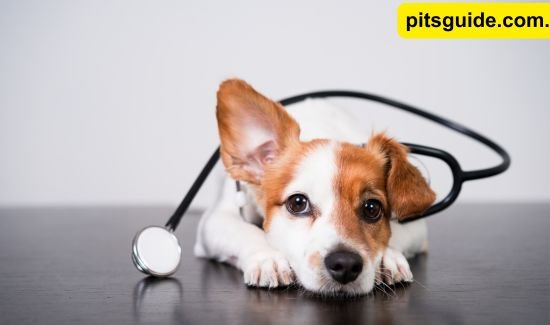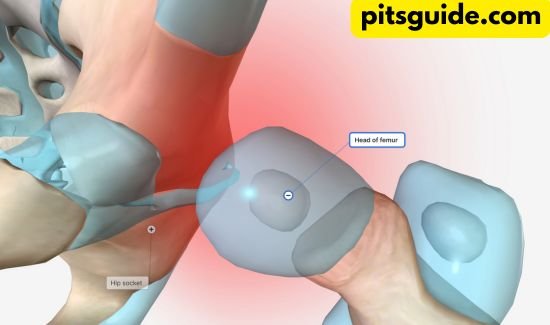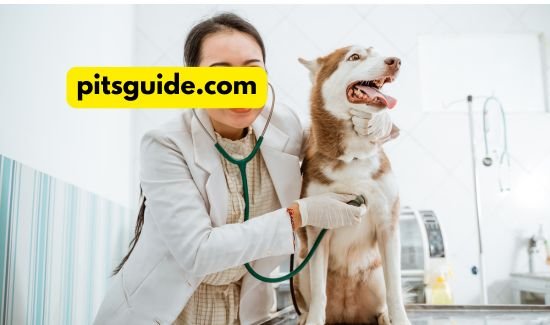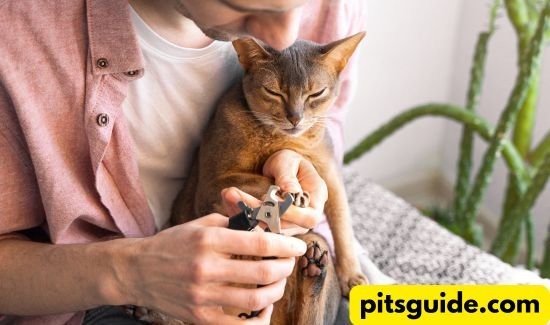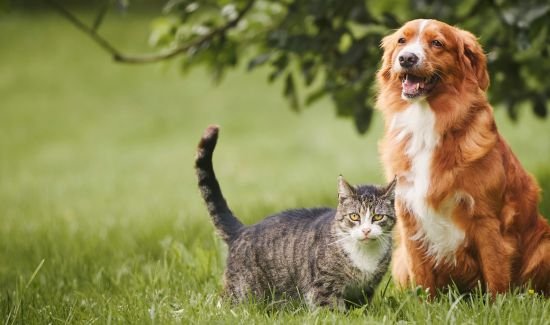Table of Contents
1. Introduction
– Importance of Pet Wellness
– Benefits of a Holistic Approach
2. **Understanding Your Pet’s Health & Wellness Needs**
– Common Health Concerns for Different Pet Species
– Signs of Good Health in Pets
– The Role of Regular Health Monitoring
3. **Essential Nutrition Guidelines for Pet Wellness**
– Choosing the Right Diet for Your Pet
– Portion Control and Feeding Schedule
– Supplements and Special Dietary Requirements
4. **Creating an Active Lifestyle for Your Pet**
– Tailored Fitness Routines for Different Ages and Breeds
– Stress Relief and Bonding Through Exercise
5. **Preventive Care and Regular Veterinary Check-ups**
– Vaccination Schedules and Their Importance
– Dental Care and Grooming Routines
– Parasite Prevention Strategies
6. **Natural Remedies and Holistic Approaches**
– Herbal Remedies and Their Benefits
– Acupuncture for Pain Management and Balance
– Massage Therapy for Relaxation and Muscle Health
– Mindfulness and Meditation for Stress Reduction
7. **Conclusion**
– The Importance of a Holistic Approach
– Working with Your Veterinarian for Optimal Health
– Benefits of a Healthy Lifestyle for You and Your Pet
8. **FAQ**
– Common Health Concerns for Different Pet Species
– Indicators of Good Health
– Importance of Regular Health Monitoring
– Choosing the Best Food for Your Pet
– Ensuring Proper Portions and Feeding Schedules
– When to Consider Supplements
– Essential Exercises for Pets
– Importance of Vaccination Schedules
– Incorporating Natural Remedies and Holistic Approaches
—
This table of contents provides a structured guide for easy navigation through the comprehensive pet wellness guide.
Boost Your Pet’s Health with Simple Wellness Tips
In today’s fast world, our pets face many health issues. But, a holistic approach to pet wellness can greatly improve their life.Are you prepared to improve the health and happiness of your pet?
You will learn how to maintain your pet’s health from this guide.You’ll learn about nutrition, exercise, and natural remedies.It all comes down to being the best advocate for your pet.
Key Takeaways
- Recognize your pet’s unique needs in terms of health and wellbeing.
- Implement a balanced diet and proper feeding habits
- Incorporate regular exercise and physical activity
- Stay proactive with preventive care and veterinary check-ups
- Explore natural remedies and holistic approaches to pet wellness
Understanding Your Pet’s Health & Wellness Needs
Keeping our pets fit and happy is very important. We need to know what health issues they might face. Regular check-ups help keep them healthy and prevent sickness.
Common Health Concerns for Different Pet Species
Dogs can get joint problems and skin allergies. Cats might have urinary infections and dental issues. Breathing issues can arise in small animals, such as hamsters.
Signs of Good Health in Pets
- Clear, bright eyes and a glossy, robust coat
- Steady, even gait and strong muscle tone
- Balanced energy levels and playful behavior
- Consistent appetite and regular bowel movements
- Proper weight and body condition
The Role of Regular Health Monitoring
Regular vet visits and watching your pet at home are key. This helps catch health problems early. It also lets you know what’s normal for your pet.
| Pet Species | Common Health Concerns | Indicators of Good Health |
| Dogs | Joint problems, skin allergies, gastrointestinal disorders | Having a bright coat, bright eyes, a smooth pace, and balanced energy. |
| Cats | Urinary tract infections, dental disease, thyroid imbalances | Clear vision, a healthy coat, a regular appetite, and a healthy weight |
| Small Animals (Hamsters, Guinea Pigs) | Respiratory challenges, metabolic diseases | Alert behavior, regular bowel movements, strong muscle tone |
Knowing what health issues pets face helps us keep them well. Regular check-ups are important for their health.For a long period, this keeps them content and healthy.
Essential Nutrition Guidelines for Pet Wellness
Proper nutrition is key for your pet’s health. It includes the right diet, portion sizes, and supplements. You can keep your pet happy and healthy by following these tips.
Choosing the Right Diet for Your Pet
Choosing the right diet is very important. Consider your pet’s age, level of activity, and any unique requirements. All the nutrients your pet needs are provided by high-quality pet food.
Portion Control and Feeding Schedule
Controlling portions and a regular feeding schedule are crucial. Use the food label’s serving sizes. Talk to your vet to find the perfect amount for your pet. A set feeding time helps with hunger and digestion.
Supplements and Special Dietary Requirements
- Some pets need extra help for things like joint health or skin care.
- Ask your vet if your pet needs supplements. They’ll know the right ones and how much.
- Pets with health issues or food allergies might need special food. Your vet can help make a plan just for them.
| Nutrient | Importance | Good Sources |
| Protein | Important for growth and fixing tissues | Meat, poultry, fish, eggs |
| Healthy Fats | Good for skin, energy, and organs | Fish oils, plant-based oils, nuts, and seeds |
| Carbohydrates | Give energy and help with digestion | Whole grains, fruits, and vegetables |
The cornerstone of your pet’s health and wellness is a well-balanced diet. By following these essential nutrition guidelines, you can ensure your furry friend thrives and enjoys a long, healthy life.”
Creating an Active Lifestyle for Your Pet
The key to your pet’s health is to keep them active. Exercise helps them stay fit, reduces stress, and keeps them at a good weight. By choosing the right activities for your pet, they’ll be happy and full of energy.
Tailored Fitness Routines
The right exercise for your pet depends on their age, breed, and needs. Young pets need lots of play and exploration. Older pets prefer easier activities to protect their joints.
- Take your dog for walks, jogs, or fetch to keep them fit and strong.
- Give your cat toys and perches for climbing and jumping, which they love.
- Try obstacle courses or agility training to challenge and engage your pet.
Stress Relief and Bonding
Exercise also boosts your pet’s mental health. Playing together reduces stress and strengthens your bond.
| Activity | Benefits |
| Swimming | Low-impact exercise that’s great for pets with joint issues or senior pets |
| Hiking | Allows pets to explore new environments and engage in physical activity |
| Tug-of-war | Strengthens the bond between pet and owner while providing a fun workout |
By making your pet active, you support their fitness and reduce stress. This leads to weight loss and a happier life for your pet.
Preventive Care and Regular Veterinary Check-ups
Keeping your pet healthy is very important.You should regularly take them to the veterinarian and provide preventive care.This helps keep them well and stops diseases.
Vaccination Schedules and Importance
Vaccines are key for your pet’s health. They protect against many diseases. Talk to your vet about when to get them vaccinated.
Dental Care and Grooming Routines
Good dental care and grooming are important. Brushing their teeth keeps their mouth healthy. Grooming also maintains the health and cleanliness of their coat.
Parasite Prevention Strategies
- To protect them, use flea, tick, and heartworm prevention.
- Get a plan from your vet for parasite prevention.
- Check for parasites often and treat them fast.
Preventive care and vet visits are crucial. They help keep your pet healthy for a long time. This makes their life better and longer.
Natural Remedies and Holistic Approaches
In the world of pet wellness, natural remedies and holistic approaches are becoming more popular. They offer a different way to care for pets, focusing on their mind, body, and spirit.
Herbal remedies can help with common pet problems. Chamomile, valerian, and lavender can calm anxiety and help with symptoms.For ages, acupuncture has been used to treat pets’ pain and balance issues.
- Herbal Remedies: Explore the benefits of natural plant-based treatments, such as chamomile, valerian, and lavender.
- Acupuncture: This ancient practice can help manage pain, improve circulation, and restore balance in your pet’s body.
- Massage Therapy: Gentle, soothing massages can promote relaxation, alleviate muscle tension, and enhance overall well-being.
- Mindfulness and Meditation: Incorporating mindfulness and meditation techniques into your pet’s routine can help reduce stress and foster a sense of calm.
By trying these natural remedies and holistic approaches, you can help your pet feel better. Always talk to your vet before starting any new treatments.You can ensure your pet receives the best care possible in this way
Addressing the full person rather than simply the physical symptoms is the goal of holistic healing. It’s a journey of restoring balance and cultivating mindfulness in our pets’ lives.”
Conclusion
A holistic approach to pet health is key for your pet’s well-being. It means knowing their needs, feeding them right, and keeping them active. It also means using natural remedies and preventive care.
The health of your pet depends on your collaboration with your veterinarian.A healthy lifestyle and routine veterinary care are essential. Your pet will remain content and healthy in this way.
Maintaining your pet’s health benefits you both. It strengthens your bond and brings joy. By focusing on their health, you create lasting memories and show your love.
FAQ
What are the common health concerns for different pet species?
Dogs might get joint issues. Cats could have dental problems. Watch your pet’s health closely. Know what’s common for their kind.
How can I tell if my pet is in good health?
Look for a shiny coat and bright eyes. A healthy appetite is good too. Check their weight and energy to see how they’re doing.
Why is regular health monitoring important for my pet?
Regular vet visits catch health problems early. This helps keep your pet healthy for a long time.
How can I pick the best food for my pet?
Think about your pet’s age and how active they are.To select the finest food for your pet, consult your veterinarian.
How can I ensure my pet is getting the right portions and feeding schedule?
Feed the right amount and at the same time every day. Use the food maker’s guidelines.Adapt to the size and activity level of your pet as needed.
When should I consider supplements for my pet?
Ask your vet about supplements if needed. They help with nutrition or health. Always check with a vet first.
What are some essential exercises and activities for my pet?
Exercise depends on your pet’s age and breed. Walks and playtime are good. They maintain the health and happiness of your pet.
Why is it important to stay up-to-date on my pet’s vaccination schedule?
Vaccines protect your pet from diseases. Keep up with shots to keep them safe and healthy.
How can I incorporate natural remedies and holistic approaches into my pet’s wellness routine?
Try herbal remedies and acupuncture with vet advice. They can help. But always check with your vet first.

